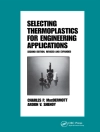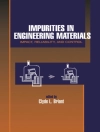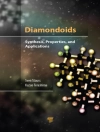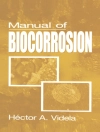There is an increasing challenge for chemical industry and research institutions to find cost-efficient and environmentally sound methods of converting natural resources into fuels chemicals and energy. Catalysts are essential to these processes and the Catalysis Specialist Periodical Report series serves to highlight major developments in this area. This series provides systematic and detailed reviews of topics of interest to scientists and engineers in the catalysis field. The coverage includes all major areas of heterogeneous and homogeneous catalysis and also specific applications of catalysis such as NOx control kinetics and experimental techniques such as microcalorimetry. Each chapter is compiled by recognised experts within their specialist fields and provides a summary of the current literature. This series will be of interest to all those in academia and industry who need an up-to-date critical analysis and summary of catalysis research and applications. Catalysis will be of interest to anyone working in academia and industry that needs an up-to-date critical analysis and summary of catalysis research and applications. Specialist Periodical Reports provide systematic and detailed review coverage in major areas of chemical research. Compiled by teams of leading experts in their specialist fields, this series is designed to help the chemistry community keep current with the latest developments in their field. Each volume in the series is published either annually or biennially and is a superb reference point for researchers. www.rsc.org/spr
Inhoudsopgave
Front matter;Preface;Contents;Solid electrolyte electrochemical cells for catalyst sensing;Molecular engineering of supported metal oxide catalysts: Oxidation reactions over supported vanadia catalysts;Zeolite-catalysed alkylation of polynuclear aromatics;Preparation and characterization of hexaaluminate materials for high-temperature catalytic combustion;Catalytic conversions in water. An environmentally benign concept for heterogenization of homogeneous catalysis;
Over de auteur
Professor Spivey is the Mc Laurin Shivers Professor of Chemical Engineering at Louisiana State University and Director of the DOE Energy Frontier Research Center at LSU. Professor Spivey’s research interests include the application of the principles of heterogeneous catalysis to catalytic combustion, control of sulfur and nitrogen oxides from combustion processes, acid/base catalysis (e.g., for condensation reactions), hydrocarbon synthesis, and the study of catalyst deactivation.












